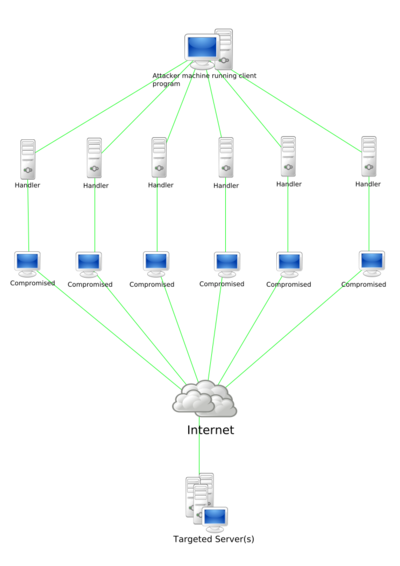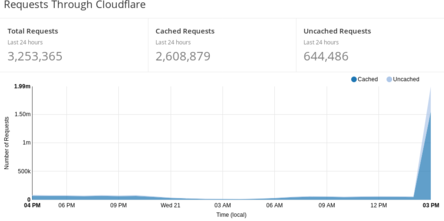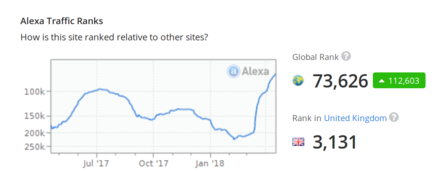Denial-of-service attack
(“cyberterrorism”) | |
|---|---|
 | |
| An attack that makes a large number of (bogus) requests on a server, intended to exceed its capacity so as to deny valid requests from other users. |
A Denial-of-service (DOS) attack is designed to prevent users from accessing a service (typically a website).
Contents
Procedure
Denial-of-service attacks exploit the inescapable limitation that computers can only service a limited number of requests at any one time. By launching a large number of requests for a service, they exceed this capacity and prevent legitimate requests from being served.
Distributed Denial-of-service attack
A Distributed Denial-of-service (DDOS) attack comes from multiple sources simultaneously, making it harder to block. This requires synchronisation of multiple computers in different locations.
DDoS-for-Hire
Brian Krebs reported in 2013, that the operator of a DDoS-as-a-service webpage told him, that he: "he was actually working for the FBI" under the week and the FBI: "allow(s) me to continue this business and have full access. [...] also use(s) the site so that they can moniter [sic] the activitys [sic] of online users".[1]
Selected Examples
In mid March 2018, Craig Murray's blog was hit by a DDOS attack, although this did not prevent the site's surge in popularity corresponding with his strident criticism of the official narrative about the Skripal affair.
This website
This website has occasionally been subject to DDOS attacks, possibly connected with a particular citation in commercially-controlled media.
Perpetrators

JTRIG carried out DDOS attacks, according to documents shared by Edward Snowden.[2]
